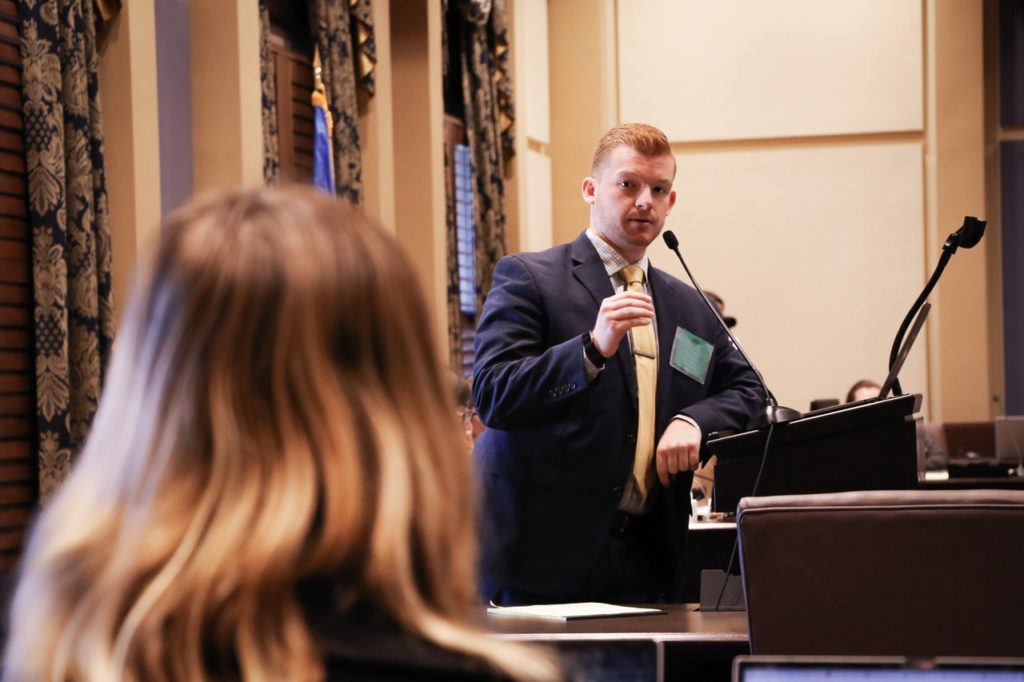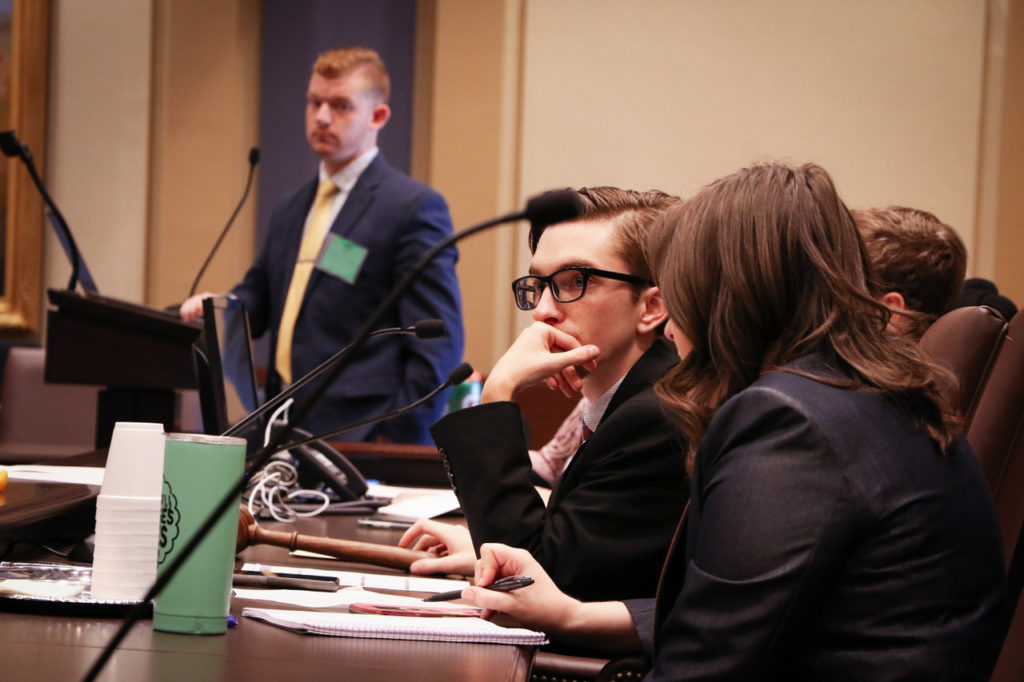Sterling Zoe Rubottom

“I want to take you back to the line that our governor stated in opening joint session to this body. He encouraged us this week to use our voice for the voiceless,” said Rep. Martin (ORU) to the House body. “Today I encourage you to vote for those who are vote-less.”
In a 43-17 vote, House bill ORU-514, written by Rep. Martin, passed after almost two hours on the floor. The “Civil Rights Act of 2019” amends an Oklahoma bill that disallows convicted felons the right to vote during imprisonment and following release.
Martin, an employee at the Center for Employment Opportunities, highlighted allowing convicted persons the chance to be rehabilitated and integrated back into their communities.

The opponency, however, argued that those who are not living amongst society should not make the rules to govern society; likewise, those who break the law should not vote on the law.
“We need to remember that the right to life of people is significantly greater than the right to vote for someone who took another person’s right to vote away. Those people committed a crime, and by committing that action, they are serving that time for a reason,” said Rep. Beard (OSU).

Some proponents defended the bill by recognizing the effect revoked voting rights would have on minority populations.
“The incarcerated population minorities disproportionately get large sentences for the exact same crime as others. [In the census], they’re counted as a member of the population where they’re incarcerated,” said Rep. Horn (OU). “This boosts the representation in federal funding for those who live in that area—even though the prison population gets absolutely none of those benefits, don’t get to choose who represents them and don’t get any of the funding.”
Others emphasized how U.S. democratic principles do, or do not, affect those imprisoned.
“In a true democracy we obey the law. As a strong advocate for criminal justice reform, I am all for representation of those who are just disproportionately [affected] by the broken criminal justice system,” said Rep. LaForce (ORU). “However, if you’re not willing to follow the law, then you should not have a role in making the law for everyone else.”
“How can we justify removing the rights of citizens of the United States and citizens of Oklahoma from voting—especially on issues that affect them the most?” said Rep. Pritzlaff.
The Senate passed a similar bill yesterday, OU-009, in a tight 16-15 vote. But while the “No Jim Crow” Act focuses on the voting rights of minorities, ORU-514 emphasizes prisoner disenfranchisement as a whole.
Now, ORU-514 is in Senate hands.
